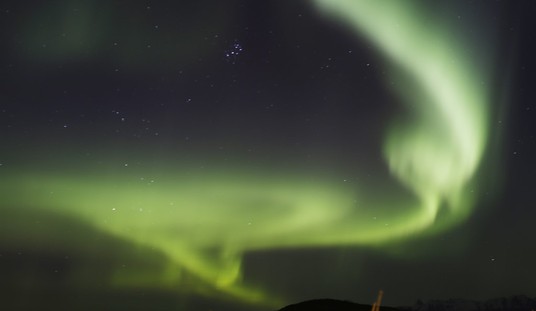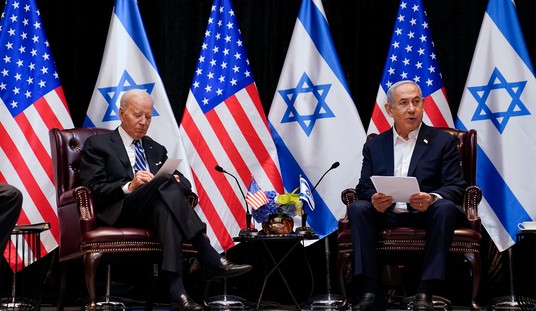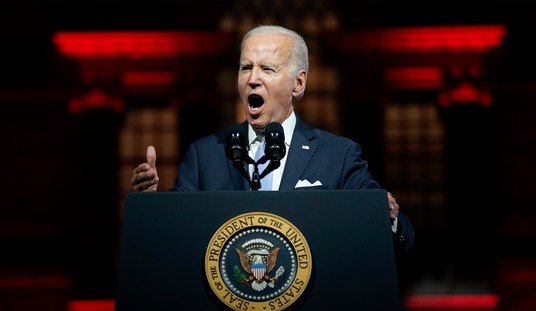If you wonder how people on the left deal with their critics, look no further than this new lengthy interview with Prof. Peter Kuznick, the co-writer and co-director with Oliver Stone of the forthcoming Showtime ten-part documentary on the 20th century. I first blogged about the projected series last January.
Based on what Kuznick and Stone said about their concepts, I presented a tough and cogent argument about how it promises to be one of the most ill-advised and dangerous treatments of our history by the media. I also addressed what I thought Kuznick was bringing to the documentary. I called him “yet another of the politically correct tenured radicals; a man of far left sympathies who considers Oliver Stone a man of great insight and profound truths.” And I called him a “left-wing activist whose concept of education verges on indoctrination, not scholarly inquiry.”
Now, in his new interview, Kuznick inadvertently confirms every one of the charges I made, and if anything, indicates that perhaps I was not even tough enough in my critique. First, I note that evidently my first blog hit home. Kuznick, instead of dealing with any of the specific criticisms I made, makes the following gratuitous comment:
I knew that participating in such a project would make me a target for the Ron Radoshes and David Horowitzes of the world, but that was a small price to pay for reaching such a vast audience of people eager to gain a deeper and more critical understanding of U.S. history.
To those on the left, for whom my name and David Horowitz’s name are both anathema, he manages to score a cheap point by informing his left-wing base that anything either of us says holds no weight, and he is boldly going ahead while ignoring any of our criticisms, even if they might have merit. Anyone familiar with Oliver Stone’s anti-Americanism, his profound love for every leftist dictator from Fidel Castro to Hugo Chavez, and his distortion of history revealed in all his fictional treatment of the Kennedy assassination, the Nixon presidency, and the rest of his work knows that one thing viewers will not receive is a “deeper and more critical understanding of U.S. history.”
In his lengthy interview, Prof. Kuznick again returns to his own student past, as he shows readers how he combined his scholarship and his activism, and never made a separation between the two. He notes that he went to Rutgers because of those “exciting scholars” he studied with, when what he means are a group of Marxist and left-wing scholars who were at Rutgers in that period. I know most of those he puts on his list. He mentions the very distinguished historian Eugene D. Genovese, but neglects to inform his readers that unlike Kuznick himself, Genovese long ago left the ranks of the left, and became one of the most critical thinkers who openly reevaluated his old premises. In a pathbreaking essay he wrote for Dissent in 1994, called “The Question: The Fall of Communism and the North American Left,” Genovese tore apart the evasions and obfuscations of the pro-Communist and anti-American left-wing, thereby showing that even an old Leninist was able to learn from history and leave the world Prof. Kuznick still is part of.
The omission is strange, since Kuznick writes that he is “very interested in understanding the process of political transformation.” Evidently, his understanding, however, goes only one way — from those who started out conservative or mainstream and became radical. Those whose thought process led them to reach very different conclusions and to hence take different paths, he either ignores or simply condemns with snide comments.
As for his own motivations for the new Showtime series, Kuznick makes it very clear that rather than anything new, what he really welcomes is the ability to reach a new mass mainstream TV audience with more left-wing and neo-Communist analysis in a well made visual format, under the auspices of an acclaimed master of cinema, Oliver Stone. As he puts it, the project was “right up my alley from the start,” since the film, like his own work, deals with “American militarism, the Cold War, and the history of the nuclear arms race.” It will be, he says, a “film series on the history of the American empire and national security state.” So anyone expecting nuance and balance with talking heads offering different interpretations are clearly not going to get any of that nonsense. This is to be propaganda expertly done, meant to influence a new generation. Kuznick notes that some of his own efforts in this regard have so far “proved futile.”
As Kuznick notes, his intention is now to reach “an audience of tens of millions,” not just his captive students at American University. Now let me turn to how Kuznick deals with what he says is one of his expert areas: why the United States used the A-bomb to end the war against Japan. He writes that Truman used it, “despite knowing that important Japanese leaders were looking for a face-saving way to end the war and that the Soviet invasion, which Japanese leaders dreaded, was about to begin and would likely prove decisive.” Now Kuznick should know that in fact, every point he makes in that sentence has been challenged decisively by some of the most important recent scholarship. Indeed, even when I participated in the History News Network debate a few years ago about whether or not Truman was a war criminal, much had already appeared to effectively refute what Kuznick says about the use of the A-bomb by Truman.
A definitive judgment on this was made by the historian Wilson D. Miscamble in his Truman Institute prize-winning 2007 book, From Roosevelt to Truman: Potsdam, Hiroshima and the Cold War. Miscamble writes that when Kuznick and others protested the Smithsonian’s plan to display the plane Enola Gay and demanded instead an exhibit that “held that the atomic bomb was neither necessary to end the Pacific war nor to save American lives,” that was stopped by members of Congress, WWII veterans of the Pacific war, who forced the Smithsonian to back down. Kuznick’s group (as he writes proudly in his own piece ) then argued, as Miscamble summarizes their charges, that “blatant political pressure essentially had censored a well-researched, historical interpretation.” Miscamble comments that “viewed through the perspective of the most accurate historical research of the past decade, it is clear that the veterans’ groups saved the Smithsonian from the embarrassment of highlighting a deeply flawed interpretation.” These veterans, he adds, had a view that “holds up much better than the initial view offered by…the scholars who advised” the Smithsonian curators.
As for the Alperovitz theory that Kuznick subscribes to, Miscamble writes:
Alperovitz built his approach on a quicksand of faulty assumptions especially as regards the likelihood of an early Japanese surrender, and so contributed handsomely to a generation of confusion and misunderstanding regarding the use of the atomic bomb. The time has come to move beyond him and his distorted “thesis” once and for all.
To which I add not only a hearty amen, but ask Kuznick the following question: Since your own interview rehashes the discredited theory of Alperovitz and others as if it still holds up, will your and Oliver Stone’s film continue to advance it and condemn Truman for using the bomb and not considering what he calls “other options” that in fact were never really present as a viable alternative?
Actually, we do not have to wait for an answer. Kuznick makes it quite clear that he is writing a script that will show how the US consciously moved to the “dark side.” Indeed, he says he agrees with Daniel Ellsberg that during the war in Vietnam, “We were not on the wrong side. We were the wrong side.” This is, I suggest, more than shocking. It shows that if anyone has not learned from history, it is Prof. Kuznick. Can he explain the thousands who fled the Communist rule and risked their lives in the endless flotilla of refugees, the so-called “boat people”? Can he justify the re-education camps, the imposition of totalitarian Communist rule, the suppression of all dissent, and the one-party state that was created after North Vietnam’s victory?
In asserting that the United States was on the wrong side, Kuznick so many years later supports those who during the ’60’s anti-war movement called not for peace negotiations and an end to the bombing, but for victory for the National Liberation Front (or Vietcong), and who held placards proclaiming “Ho, Ho, Ho Chi Minh-NLF’s Gonna Win.” He inadvertently offers support to those of us who said at the time that these people did not want an end to what they thought was a wrong-headed war, but were really agents of the Communists seeking victory for their side. Thank you, Prof. Kuznick, for showing us now that those anti-war people like Irving Howe and Michael Harrington, who refused to march in DC demonstrations with such people, were correct in understanding the real agenda of the movement.
Speak of “Manichean simplicities,”of which Kuznick accuses only the United States! He even accuses the US of threatening the world with “nuclear annihilation in order to force compliance with U.S. demands.” Examples, please? Since his interview was given to HNN as the world now contemplates the attainment by the theocracy of Iran with nuclear weapons which in fact do threaten the world (and which the Obama administration rightfully says it will not allow to happen), what is his position on Iran’s attempt to get a bomb, and its persistent threat to obliterate Israel?
He asks what would “have happened if Henry Wallace had become president in 1945 instead of Harry Truman? Would there have been no atomic bomb and, perhaps, no Cold War?” Let me answer this, Prof. Kuznick. I know something about Wallace, having written my MA on him, having spent a full day with him at his farm in South Salem NY, and having researched his life and having written a very critical review of his life for The New Republic. The answer is easy, and it is not the one I think Kuznick expects.
Not only would there have been a Cold War, but it would have put the United States on the same side as Joseph Stalin, and helped the Soviet dictator gain his goal of not only creating imitations of Moscow in the so-called “Peoples’ Democracies” of Eastern Europe, but enabling him as well to subvert the established Western democracies existing in countries like Italy and France. With Wallace at the helm, the United States would have had a president advised by the remaining secret Communists in the government, such as Wallace’s top advisor, the Soviet agent Harry Magdoff, who subsequently went on to edit the Marxist publication Monthly Review after his years in government came to an end. Having established already that he in fact supports the other side in Vietnam, it is perhaps not surprising that Kuznick also supports the Soviet side in the emerging Cold War in the 1950s.
In Kunzick and Stone’s eyes, the US is always the villain — as he puts it, the country that resorts “to force, and sometimes even assassination, terror and torture to achieve that goal.” What does he, and his documentary, I wonder, say about Saddam Hussein, who forced the citizens of Iraq to live under the force of Hussein’s fascist boot for so long? Somehow, I don’t think he is too concerned about anything like that question.
How sad that like other left-wing and self-hating Jews, Kuznick too uses the fact that most of his family perished in the Holocaust to justify his present obscurantist and reactionary views. He wants us to believe it is his “abhorrence of fascism” that forces him not to remain silent in the face of evil. The problem is that the only evil he sees is that of his own country, while he exonerates or ignores the evil in other nations, or blames their evil on what the United States has done to them — the perennial favorite argument of the far left.
Yes, Kuznick denies this. Realizing what he has said, he then seeks to deny his own argument, claiming that he and Stone do not say that the “United States is somehow intrinsically evil and that other nations are, by contrast, more moral.” Of course, he has in fact said just that a few paragraphs earlier. He goes on to explain it is only that the US has the power and wealth to do great harm, while other nations do not. This too is false. The “revisionist” historians of the Cold War used to argue that the Soviets could not have been at fault for the postwar division of the world, because they emerged economically devastated at the war’s end while the US was strong. But as we have seen from Cold War histories written by scholars like John L. Gaddis of Yale, the Soviet weakness did not stop them from successfully scoring many victories and from manipulating the wealthier Western powers to succumb to their agenda.
In his last paragraphs, Kuznick reveals that he and Stone will conclude by showing viewers how the US through all the postwar presidents used “unchecked power” that might have led to six hundred million dead worldwide had nuclear war broken out. They will then show how would-be “decent leaders” like Kissinger and Reagan (does Kuznick really believe they are decent, or is this just a verbal mechanism to set them up for his kill?) supported “the most vicious, malign, and murderous forces in Latin America.” Really? Will his viewers get a counter argument from people like Elliot Abrams, whom Kuznick easily could have put on camera, to answer and show the policies of Reagan and George H.W. Bush isolated the Leninist guerrillas, led to peace negotiations, and ended both right- and left-wing extremism in the region?
And as for Islamic radicalism today, Kuznick as expected argues that it is the fault of the US, because we alone “deliberately (my emphasis) fostered and fanned the flames of Islamic extremism.” So, as I said earlier, if there is extremism that is bad, it always is OUR fault. They will show, he says, how our leaders “repeatedly lied the country into war.” I assume that goes for resurrection of Charles Beard’s old thesis about FDR too. After all, Old left and Old right come together when it is a matter of conspiracy theory explaining history.
I end with a concrete challenge to Prof. Kuznick. At one point, he says that in his classes, he brings in a “diverse group of speakers” from all sides, such as supporters of the war in Vietnam and its opponents. The list he offers, however, is largely composed of those who have very similar points of view — that of the Left. He only mentions one speaker whom I know to have an independent view, Max Holland, a man I have worked with in the past and who is brilliant and incisive in his critiques.
So I offer him this challenge: When your class deals, as I assume it does, with the McCarthy era and anti-Communism in the United States, bring in both John Earl Haynes and myself to talk on the subject and to challenge the point of view you hold which I assume will be advanced in the film. Both Haynes and I, who are in the metropolitan DC area, have the credentials and expertise to talk to his class and give them a solid contrary view. I’m waiting, Prof. Kuznick, for your response.








Join the conversation as a VIP Member